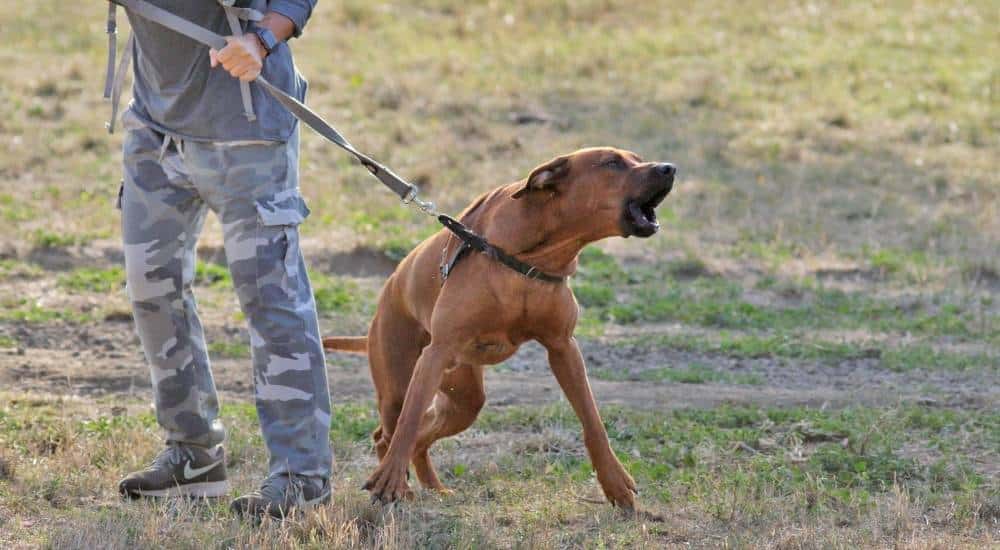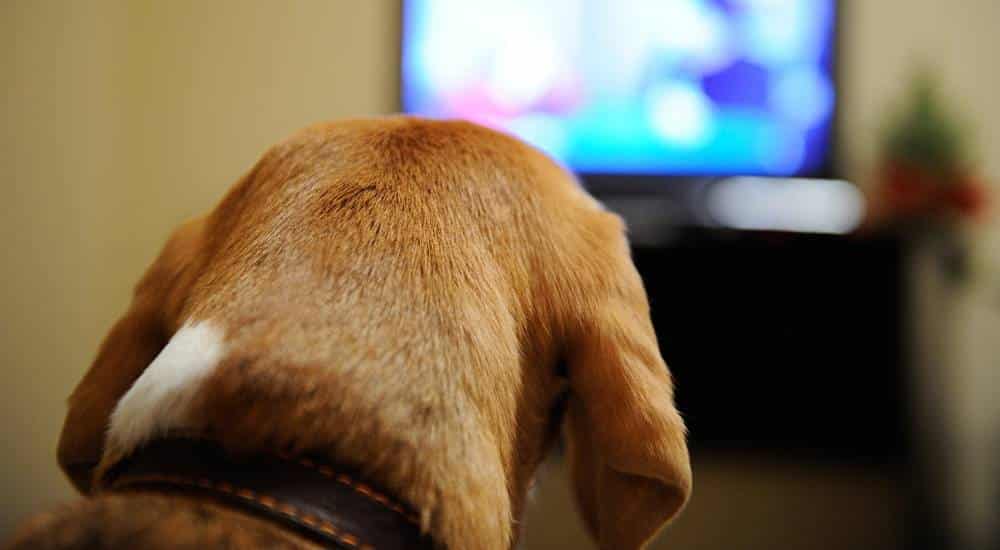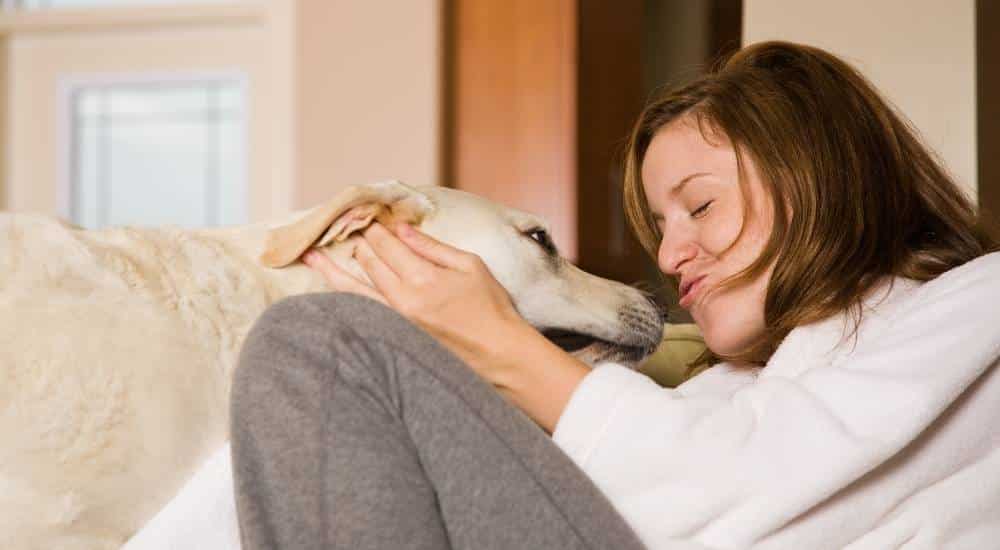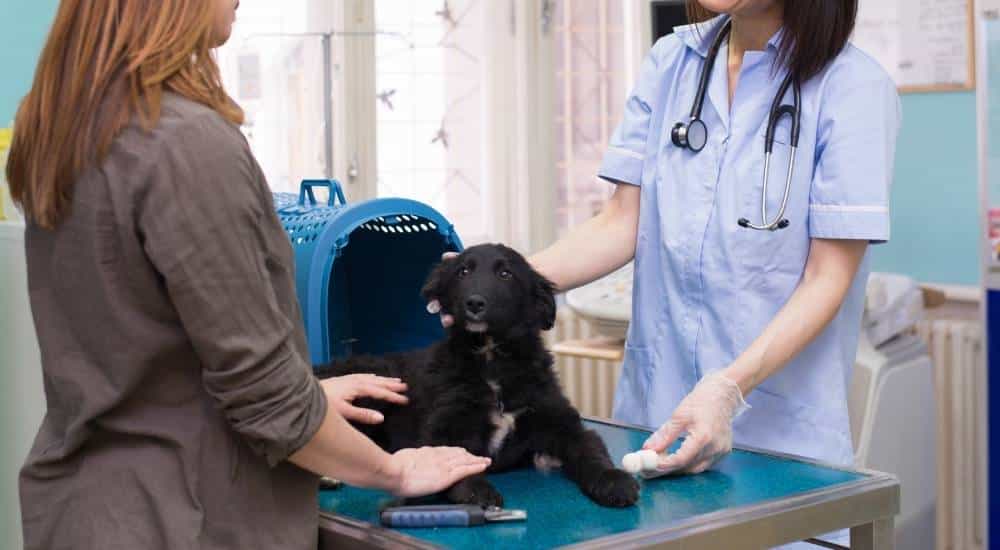Barking is one way that dogs communicate with us. They may be trying to warn you of potential danger or express their excitement on your return. Barking, whining, and howling are natural ways that dogs express themselves. But, learning how to stop dogs from barking may be necessary for your peace and sanity.
Barking is one of the most effective ways that dogs talk to their pet parents. Barking can convey a variety of feelings, so it’s essential that you learn your pet’s barking language to understand their intent. Here are some of the many reasons why dogs bark:
- Express excitement or playfulness
- Warn you of danger
- Seek attention
- Ask for food or water
- Relieve boredom
- Express fear or anxiety
- Claim their territory
- React to surprises
- Express pain
- Respond to other dogs
You can determine why your dog is barking by considering their body language. In many cases, you can stop the dog’s barking by understanding the cause and changing of your pup’s environment. If your dog barks excessively with no understood reason, the situation can be improved with consistent intervention and training.
How to Control Your Dog’s Barking
Excess barking doesn’t usually improve on its own. You must intervene if you want improvement. Once you understand the reasons for your pups barking, you can address the source. In most cases, you can train your dog to calm down, but some situations may require a visit to the veterinarian or a behaviorist. But,before you head to the trainer or vet, try these simple interventions to control your dogs barking:
- Meet your dog’s physical needs
- Keep your dog with you as much as possible
- Provide bones, chew toys, or a companion
- Move the dog to an area without stimulation
- Turn on the radio or TV to cover outside noises
- Gently tell your dog “No” or “Quiet” with your hand around his muzzle
- Train your dog to understand “Speak” and “Quiet”
- Ignore the barking and reward your pup when he quiets
Teach Your Dog the “Quiet” Command
Teaching your dog to bark on command seems like the hard way to stop your dog’s barking. However, it is an effective solution. Give the command “Speak” and wait for your pup to bark. When they succeed, reward them with a treat or affection.
Once your dog is able to bark on command, move to the “Quiet” command. In a calm environment, give the “Speak” command. When they respond, Give the “Quiet” command and produce a treat. When your pup quiets, give the treat and praise them. Once you’ve taught the command, use it often and reinforce it with praise or treats. You’ll reap the benefits next time your pup goes on a barking spree.
Keeping Your Cool When Your Dog is Barking
It’s often hard to avoid shouting when your dog is barking at the top of their lungs, but you must. Your pet interprets shouting as if you’re barking back. Instead, speak gently and stay calm. Your behavior will reassure your pup and help reduce anxiety. As a bonus, they need to stop barking to hear what you are saying.
Excitement at Greeting You or the Doorbell
It’s natural for a dog to greet you when you first arrive home. But if your pup goes into a barking frenzy or jumps on you, you need to correct this behavior. Avoid making eye contact or greeting your pet in any way until they calm down and present good behavior. Then acknowledge them and give praise or playtime. If you delay your attention until they’re quiet, they will learn to stop barking quickly.
Why Is My Dog Barking at the TV?
Your pup is probably reacting to a sound or picture on the screen. Often, dogs bark at animals on TV. Pay attention to the types of scenes or sounds that provoke barking at the TV and try to calm them when they react to a sight or sound. You may need to give treats or plenty of affection in the beginning to change the behavior. With consistency, your pup will learn to calm down and enjoy watching TV with you.
How to Stop Dogs Barking at the TV:
- Feed your dog when you settle down for TV. Eventually, your dog will associate the TV with dinnertime.
- Tire your pup out before TV time. A tired puppy is a quiet puppy.
- Listen with wireless headphones if TV noises provoke your pet.
- Give your pet a chew toy to occupy them during TV time.
Related: Does CBD oil calm your dog and help him sleep? Learn the facts and myths about CBD oil.
Dogs Barking at Night
Dogs barking at night can disturb everyone’s sleep. This type of barking is most common in younger dogs and hunting or herding breeds. When your dog is barking at night or in the early morning, you probably don’t care what the cause is; you just want it to stop. But, once again, understanding the cause is the key to changing the behavior. Here are some common reasons that dogs bark at night:
- Loneliness
- Alarm or perceived intruders
- Pain or illness
- Needing a bathroom trip
- Separation anxiety
- Boredom or habit
- Dementia in older dogs
If your dog begins barking at night, consider whether illness could be a factor. An upset stomach or bladder infection can wake a dog at night and cause them to bark or howl because they need to go out. A trip to the veterinarian is in order to make sure your pup is well and has no health issues.
Avoid Rewarding Barking Behaviors
If your dog is barking to gain attention or demand a treat, giving them the treat or attention is rewarding the barking and teaches them to bark more often for more attention and treats. For example, if you give lots of love and attention to calm a dog barking at night, you may be teaching them to bark whenever they wake up lonely.
A better response is to calm the dog quickly, give the “Quiet” command, and return to bed. Once your pup realizes that barking won’t be met with attention, they will learn to get back to sleep on their own.
You would never want to ignore a dog in pain, however, try to learn the tones and meanings in your pet’s bark so you’ll know which ones to ignore.
What behaviors do dogs and cats have in common? Learn more from our blog post: Cats that Act Like Dogs.
Should You Consider a Bark Collar?
There are a number of different types of bark collars that promise to stop dog barking. Some make an ultrasonic noise or a beeping noise. Others deliver a spray of calming essential oils or spray water when the dog barks. But the most widely used bark collars produce a painful jolt to your pet and may make your dog’s barking problem worse.
If you believe your dog needs a bark collar, discuss it with your veterinarian. Bark collars can harm your pup or make them more aggressive. They can make problems worse if your dog associates the pain with the situation causing the barking, rather than the barking itself.
A Trip to the Vet May Be Necessary
A trip to the veterinarian is often the best solution if you cannot determine the cause of your pet’s barking. Prudent Pet can help you keep them healthy and thriving with affordable pet health insurance.
Pet health insurance allows you to protect your pet’s well-being with budget-friendly payments. It protects your pet and your wallet from large, unexpected expenses.
Do yourself and your pet a favor and get a free quote from Prudent Pet today. You’ll enjoy the peace of mind knowing your dog is covered for whatever life may throw at you.
Did you enjoy this post? Follow us on social media and check the blog frequently for more great articles.










